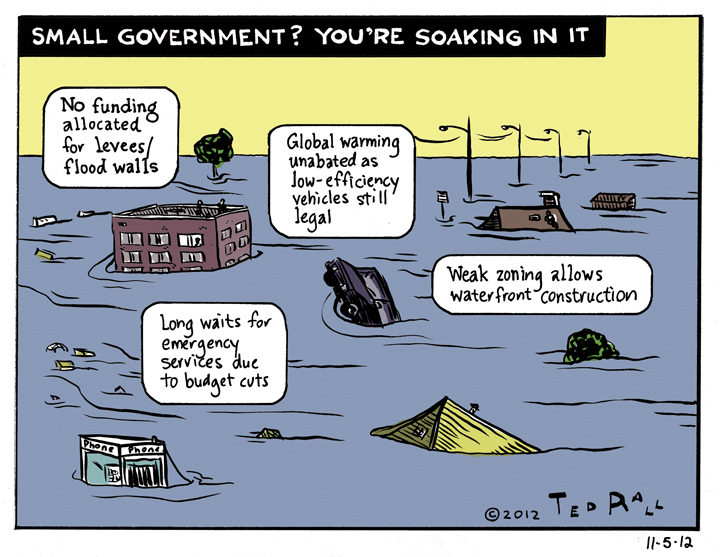
Odds are, you are poor. Or you’ve been poor.
Conventional wisdom — i.e., what the media says, not what most people think — repeatedly implies that poverty is a permanent state that chronically afflicts a relatively small number of Americans, while the rest of us thrive in a vast, if besieged, middle class. In fact, most Americans between age 25 and 75 have spent at least one year living under the poverty line.
“One of the biggest myths about poverty in the United States is that a relatively small segment of the population is poor, and that this represents a more or less permanent underclass,” Columbia University economist and social work professor Irwin Garfinkel tells Columbia magazine. “But poverty is quite dynamic. Lots of people move in and out of poverty over the course of their lives. And it doesn’t take much for people at the edge to lose their footing: a reduction in work hours, an inability to find affordable day care, a family breakup, or an illness — any of these can be disastrous.”
Even if you bounce back, the effects of these financial setbacks linger. For young adults, attending cheaper colleges or passing up higher education — or being unable to afford to take a low-paid internship — burdens them with opportunity costs that hobble them the remainder of their lives (which will likelier end sooner). Debts accrue with compound interest and must be repaid; damaged credit ratings block qualified buyers from purchasing homes. Diseases go undetected and untreated during periods without healthcare. Gaps on resumes are a red flag for employers.
Americans pay a price for the boom-and-bust cycle of capitalism. To find out exactly how high the cost is, Professor Garfinkel and his colleagues at Columbia have created the Poverty Tracker, dubbed “one of the most richly detailed studies of poverty ever undertaken in the United States.” The Poverty Tracker is “a meticulous long-term survey of 2,300 New York households across all income levels…for at least two years” that aims “to create a much more intimate and precise portrait of economic distress than has ever been conducted in any US city.”
Initial findings were distressing: “While the city’s official poverty rate is 21%, the Columbia researchers found that 37% of New Yorkers, or about 3 million people, went through an extended period in 2012 when money was so tight that they lost their home, had their utilities shut off, neglected to seek medical treatment for an illness, went hungry, or experienced another ‘severe material hardship,’ as the researchers define such extreme consequences.”
Wait, it’s even worse than that:
“Even the 37% figure understates the number of New Yorkers who endured tough times in 2012. The researchers estimate that two million more endured what they call ‘moderate material hardship,’ which, as opposed to, say, losing one’s home or having the lights shut off, might involve merely falling behind on the rent or utility bills for a couple of months. Many others were in poor health. Indeed, the researchers found that if you add together all of those who were in poverty, suffered severe material hardship, or had a serious health problem, this represented more than half of all New Yorkers [emphasis is mine].”
The researchers hope that “they will have enough data to begin helping public authorities, legislators, foundations, nonprofits, philanthropists, and private charities address the underlying problems that affect the city’s poor” by the end of 2014.
Nationally, more than 35% of all Americans are currently ducking calls from collection agencies over unpaid debts.
What can be done?
Under this system? Not much. Democrats, who haven’t even proposed a major anti-poverty program since the 1960s, aren’t meaningfully better on poverty than Republicans.
As things stand, the best we can hope for from the political classes are crumbs: a few teeny-weeny proposals for wee reforms.
Like expanding day-care programs. More school lunches. Housing subsidies. “Additional investments in food programs.”
A drop in the bucket in an ocean of misery.
The Poverty Tracker shows that poverty is a huge problem in the United States. Unfortunately its authors, who draw their salaries from an institution intimately intertwined with monied elites, dare not openly suggest what they know to be true, that the key to eliminating poverty is to get rid of its root cause: capitalism.
(Ted Rall, syndicated writer and cartoonist, is the author of “After We Kill You, We Will Welcome You Back As Honored Guests: Unembedded in Afghanistan,” out Sept. 2. Subscribe to Ted Rall at Beacon.)
COPYRIGHT 2014 TED RALL, DISTRIBUTED BY CREATORS.COM

